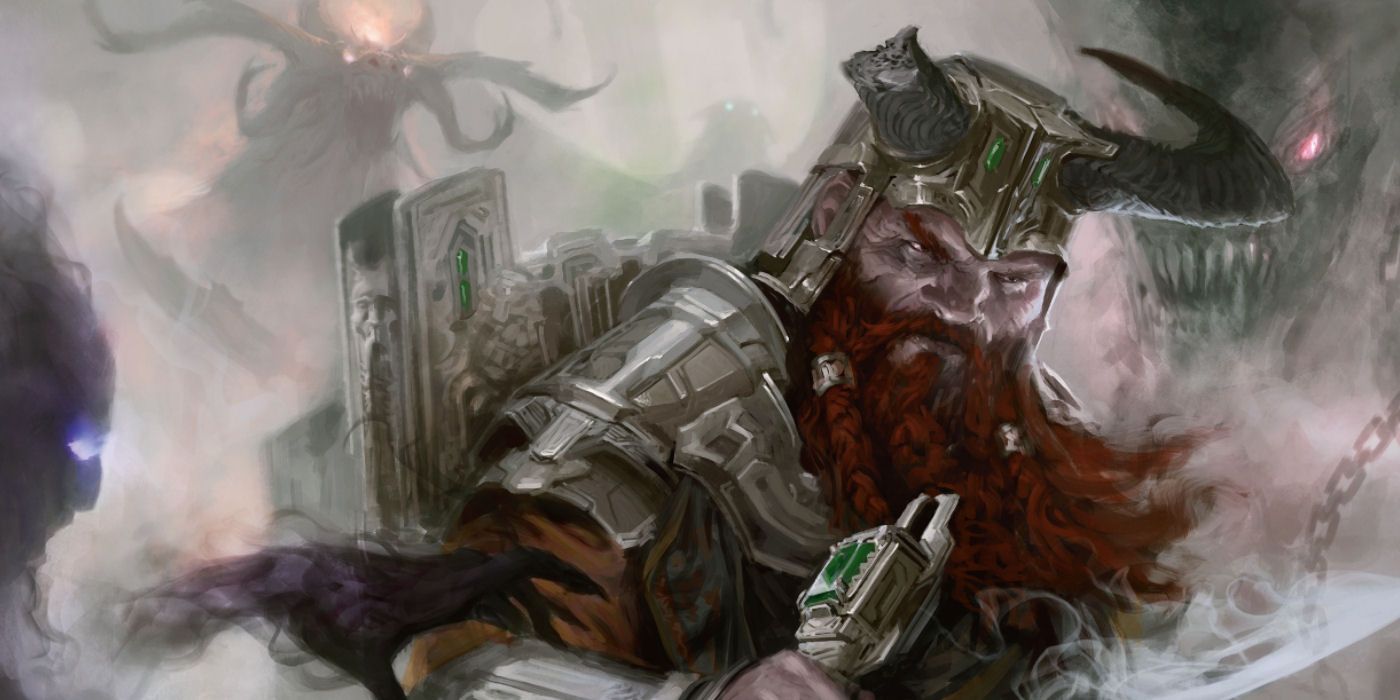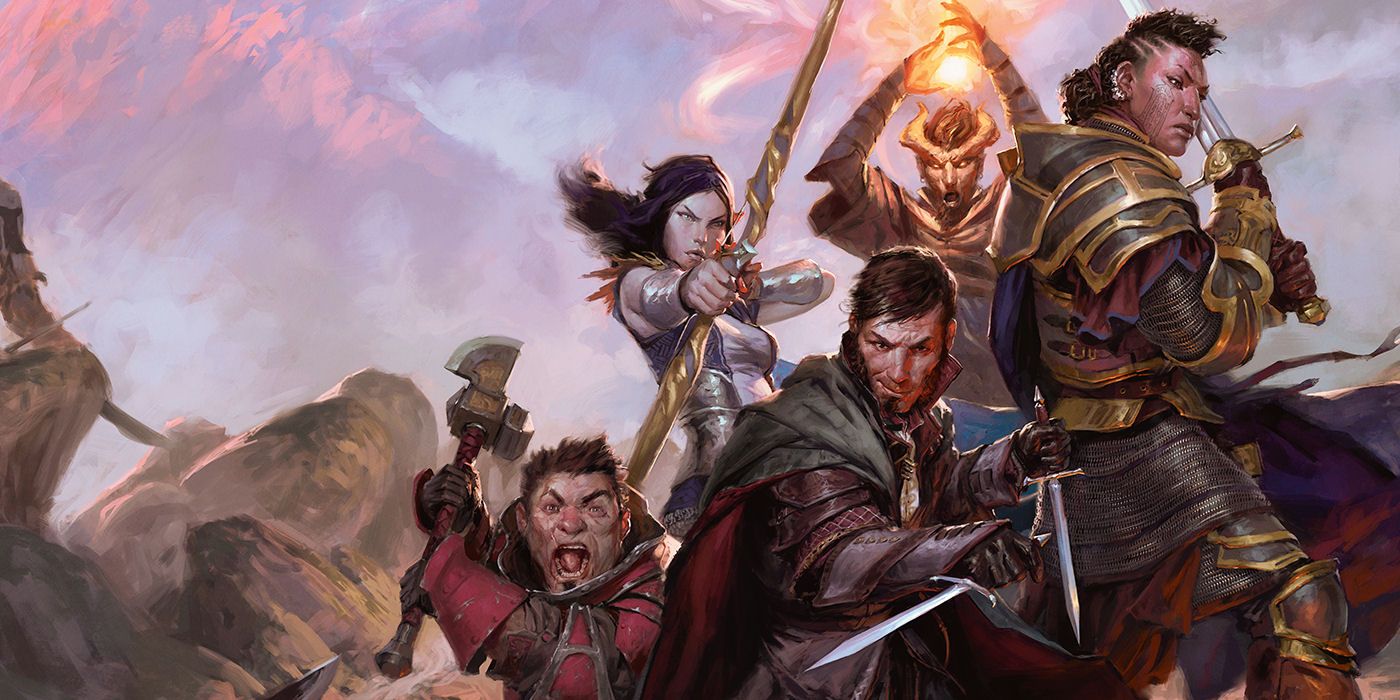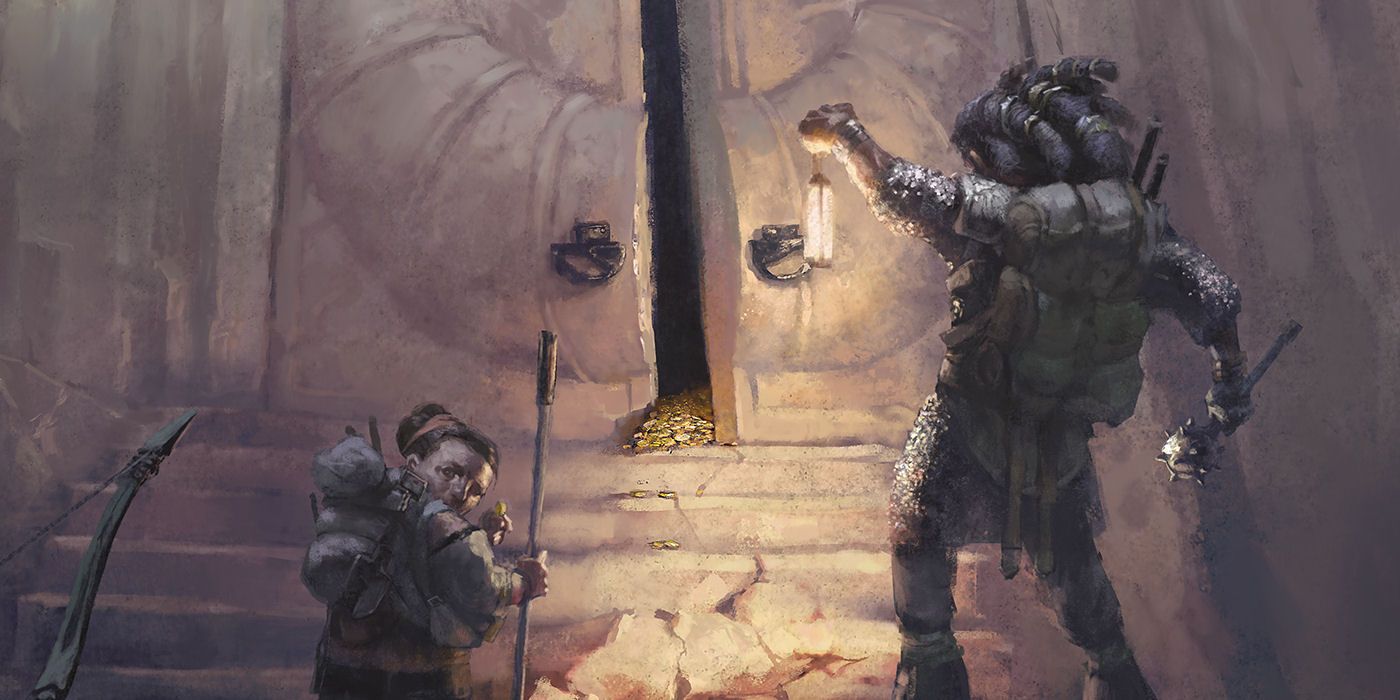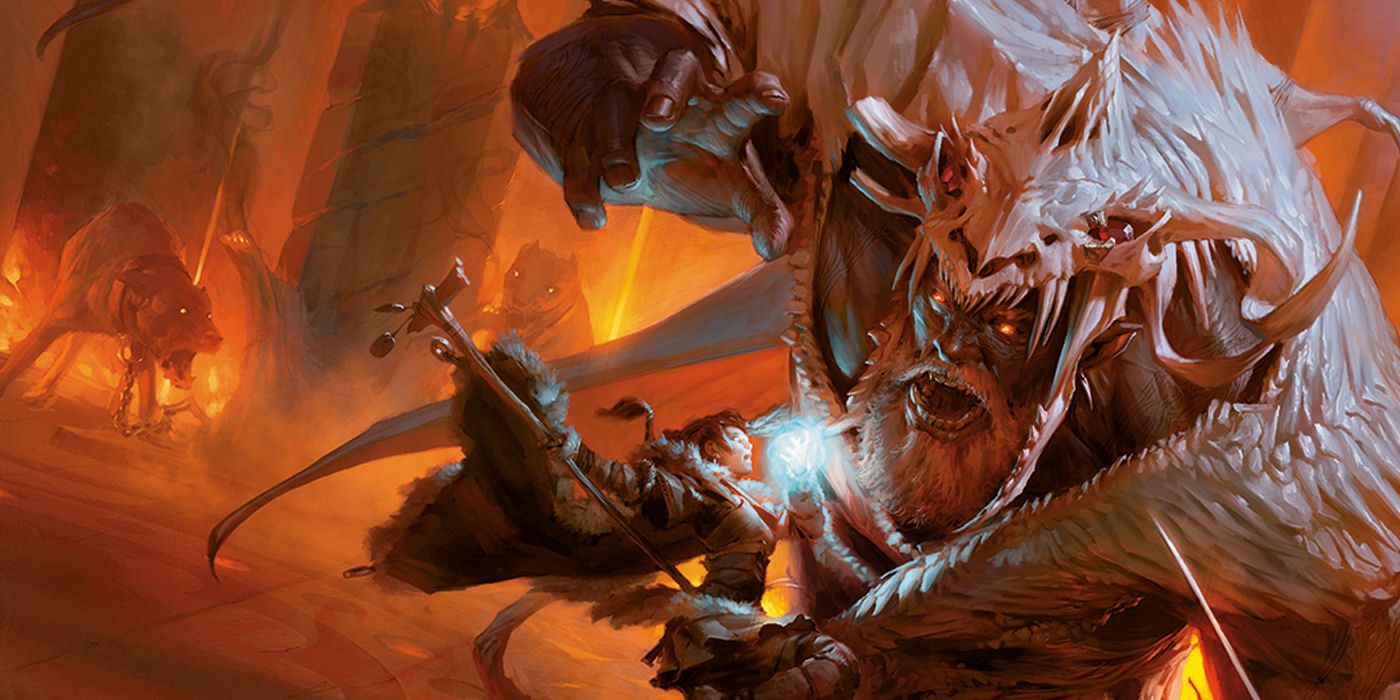For players looking to make characters of humble origins in Dungeons & Dragons, grounded in the working-class world of their campaign, there are few better options than blacksmiths. D&D campaigns often feature players whose characters have come from modest means, eager to answer the call to adventure. As such, it's not uncommon for characters to have been thieves, farmers, hunters, or craftsmen. Much of a character’s personality is determined by the player, who works with the dungeon master to shape an origin for their respective character. However, certain elements within the game are tailor-made to accommodate players who want to play as a blacksmith.
There are few things as iconic in Dungeons & Dragons as the party's meeting point, the characters drawn together by the pursuit of wealth, glory, righteousness, or revenge. Typically, these characters will originate as insignificant players in the grand scheme of events, but they will grow in infamy through trials and tribulations. For these campaigns, which have gathered together an unassuming crew of adventurers, playing as a blacksmith can serve as the cornerstone for a rags-to-riches story.
Players have much of the control when determining their character’s story. They are responsible for devising the backstory of the character as well as the ideals, flaws, and bonds that tether the character to the adventure and the world. Notably, there are certain character-building choices and features built into character creation that will bolster any potential blacksmith. The most crucial elements in building a proper blacksmith are race, class, and background; a shrewd combination of these features will create ample roleplay opportunities and fun Dungeons & Dragons character backstories.
Possible Races for Building a Blacksmith
For building a blacksmith, a character’s race can lend to both roleplaying and utility. At first glance, playing as a dwarf may seem the most obvious choice - in most classic fantasy settings, dwarves are the skilled miners and craftsmen that forge weapons and artifacts of renown. Dungeons & Dragons is no exception. Should a player pick a dwarf as their race, they will receive proficiency in either smith’s tools, brewer’s supplies, or mason’s tools. A proficiency in smith's tools will grant the character robust knowledge in forging weapons and armor. Couple this with the automatic +2 bonus that dwarves get to their Constitution, which will make the blacksmith a natural frontline tank, and this race is incredibly appealing for a blacksmith build.
While most blacksmiths are typically dwarves, there are other races that make a convincing argument as well. Playing as a Dungeons & Dragons dragonborn, for instance, would be another solid choice. Dragonborn receive a +2 bonus to their Strength, an Ability Score increase that is incredibly important for any blacksmith that will fight with heavy weaponry. Furthermore, depending on the type of dragonborn, they can be resistant to fire damage. Brass, gold, and red dragonborn all gain natural fire resistance and the ability to make a fiery breath attack. Thematically, a blacksmith that is resistant to the scorching heat of a forge, as well as one with the ability to heat metal with their breath, could make for a superb roleplaying experience.
Possible Classes for Building a Blacksmith
A blacksmith’s class offers players another avenue where they can enrich their backstory. As per the demands of laboring in a forge, a blacksmith will presumably rely heavily on Strength. Playing as the Barbarian class may seem appealing, but there is a strong case for picking a Fighter. While Barbarians are often brutish, Fighters rely on precision. Surely the measured arm of a blacksmith would be similar to the skilled and versatile nature of a Fighter. Fighters also get to choose a Fighting Style, such as Defense, Great Weapon Fighting, or Protection. Consequently, the player may choose a specific style for how they envision their blacksmith's combat moves, whether it's wearing heavy armor they have crafted or wielding a greataxe of legendary origins.
Players will find that Clerics, too, make excellent blacksmiths. At first level, a Cleric picks a Divine Domain, which provides spells and features specific to the flavor of that domain. For blacksmiths, the Forge Domain is perfect. Clerics of the Forge Domain are artisans who work with metal and worship Dungeons & Dragons deities like Gond and Moradin. Through their initial Blessing of the Forge ability, such clerics will be able to imbue magic into weapons and armor, giving bonuses to attack and AC. As they continue to level, Forge Clerics will also gain the ability to copy and craft metal items, learn spells that harness fire, and can eventually achieve immunity to fire and resistance to many types of nonmagical attacks. With this arsenal of abilities, Forge Clerics make a perfect class and specialization for blacksmiths.
Possible Backgrounds for Building a Blacksmith
Character backgrounds are important in Dungeons & Dragons when creating a blacksmith, allowing players to stress the humble origins of the character. Backgrounds provide context and depth to a character’s identity, shaping their motivation for adventuring and adding a few useful additional features. The Guild Artisan background, which grants proficiency in a set of artisan’s tools, is a good choice. This background would imply that the blacksmith is an established and accredited artisan, known in a larger network. For a more rustic character, the Folk Hero is another viable choice. Folk heroes, who are also proficient in artisan’s tools, come from humble rank. Perhaps the blacksmith is a commoner who has risen to a standing of renown within their local village. For other players, The Soldier background might work, as while it doesn’t grant the same tool proficiencies, the blacksmith could have served as an armorer within a lord’s army, now sent to acquire materials for a set of master armor. Regardless of the choice, taking a moment to consider backgrounds will allow a player to add another layer of depth to their character.
There are also a few honorable mentions to consider when building a blacksmith. Feats are important for D&D combat and roleplaying as they give characters areas of specialization outside of race, class, or background. Likewise, the weapon a blacksmith carries adds flavor, perhaps being the piece they are most proud of. Give them some adventuring motivation - maybe they seek ancient magical weapons, are determined to learn from the greatest smiths, or are looking for rare materials. Combined with the aforementioned features, there's ample room within Dungeons & Dragons to create an interesting blacksmith, one who rises from the ranks of the commoners to meet the call of adventure.




